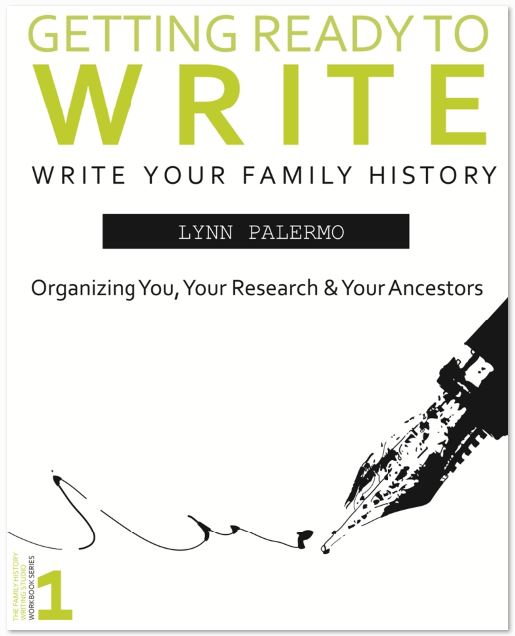Tips to Jump Start Your Writing Session
2 thought on “Tips to Jump Start Your Writing Session”
Comments are closed.
Related Post

When to Write about a Family SecretWhen to Write about a Family Secret
We all have them – secrets. Every family history has their share of secrets and as family historians, we generally will stumble across a few in our research. Uncovering a family secret certainly isn’t unusual. The arduous task can be in deciding whether to write about that secret.
Let’s first consider why people keep secrets.
- Fear of Consequences
Generally, our ancestors kept secrets because of the fear of the consequences of family and non-family members finding out. Would your ancestor be kicked out of the house, would a spouse leave, lose a job. Secrets are often kept to protect a loved one or a relationship from such consequences.
- Judgement
Our family members were afraid of being judged. They chose the discomfort of hiding the secret over the possible pain of judgement. Fear of humiliation and judgement is one of the greatest fears we have as humans, and it drives many of us to keep secrets. Right and wrong is a man-made invention. Our beliefs, sense of right and wrong come from adults and authority figures in our life. To please everyone, we keep secrets about the rules we break, so that people don’t judge us.
- Shame
There is shame attached to the secret. Societal norms dictated whether what our ancestor did was wrong. The shame of not meeting with those societal norms was enough to encourage our ancestor to engage in a secret.
- Poor choice
Our ancestor made a poor choice that couldn’t be corrected. Our ancestor then turned to hiding that poor choice.
Your ancestor may have engaged in a secret because of anyone of these reasons or a combination.
How do you decide whether to reveal a secret?
When it comes to writing about the family secrets we need to aware of the above reasons. If these reasons still exist for your family involved, then you most likely are not going to get them to be open to you writing about the secret. If it will hurt someone and produce no benefit, then it shouldn’t be told.
However, you must also examine your motivations for wanting to know the secret. Is it selfish? Is it merely to fill in a blank on the family history chart or is it to write a juicy story? Is it to get it off your chest, or do you feel a moral obligation to tell? Unfortunately, these are not good enough reasons to reveal a secret. If it is not your secret to tell, you must have the permission of those who were involved in the secret. Then you must also consider their motivation in telling the secret. Are they seeking revenge or is it time to let the secret go?
If the ancestor has passed
If the ancestor has passed, and those that are involved in the secret do not have to worry about being judged or feel shame, then I think as writers we are free to write about the secret. However, I still believe it is paramount to come at the secret with sensitivity and to put the secret into the context of the time and place. We have to be open to using the secret in our writing as a teaching moment. A time to learn about the tough choices our ancestor faced. Writing from a place of judgement or revenge will not win you any points with your readers even if your ancestor has passed.
If the person is still alive
I’ve always said if the individual or individuals who are at the centre of the secret are still alive and still fear a sense of shame or fear of being judged then it’s not our place to write about the secret. If it hurts someone who is still living and produces no benefit to the family, then it shouldn’t be told. Unless, of course, they are willing to open up to you and you can infer in them, a sense of trust.
Sometimes secrets in our ancestor’s days wouldn’t be considered a secret today. Some secrets don’t carry with them the level of shame or judgement that they did in days past. However, if that ancestor is still alive, you can’t deny their feelings even if the rest of the world has changed.
Their Secret Went to the Grave
Often, ancestors take their secrets to their graves. There is just no way for us to know what happened. It is in times like these that we need to let it go and accept the fact that the secret will never be known and perhaps that is for the best.
It’s not enough to wrap ourselves in the cloak that family secrets are a part of the family history and a fact and we have to write about it. We instead need to consider family secrets as an opportunity to heal the family, to use family history secrets to a teach a lesson if not for this generation but the next.

5 Reasons You Should Be Writing Your Family History5 Reasons You Should Be Writing Your Family History
Family historians are often contemplating what they will do with the copious amounts of research they have accumulated over the years. No question, writing stories is often the end goal. However, by the time most genealogists begin thinking about writing they are completely overwhelmed by the size of the task. Too many times I’ve heard the words…”maybe some day.”
If this sounds like you then consider joining me in The Family History Writing Challenge, we can overcome this obstacle and all the other excuses that are preventing you from beginning.
- There’s never going to be the perfect time.
There will always be obstacles. Life will get in the way and waiting for the perfect time will never happen. The Family History Writing Challenge will help you to structure writing to be a regular part of your life.
You can wait for the perfect time, when there are no distractions. But, let’s be honest that will never occur. However, by investing in as little as 15 minutes a day or by setting a daily word count, like 500 words a day you can meet your goals. Can you find 15 minutes in your schedule? I’m certain you can.
2. There is so much to learn from the journey.
Often family historians are reluctant to make the transition because they don’t consider themselves writers. No one is born a writer. Writing is a process, a learned skill that improves with practice. By diving in, you learn the habits and the environment that is conducive to helping you write, along with the necessary skills.
You learn to write family history by writing. (Tweet this!)
Often family historians are reluctant to make the transition because they don’t consider themselves writers. No one is born a writer. Writing is a process, a learned skill that improves with practice. By diving in, you learn the habits and the environment that is conducive to helping you write, along with the necessary skills.
Regardless of whether it is creative nonfiction that we cover in The Challenge or another genre you care to write about, you can’t learn, understand and perfect these skills without practicing them…that means writing.
- You can research and write at the same time.
Taking up the task of writing your family history doesn’t mean your research comes to an end. Throw out that excuse because we all know that your research will never be done, and you can’t wait until it is to start. There are many great stories waiting within your research right now. Start with one ancestor, one story, start small and simple.
Schedule your research and writing as two separate tasks. When you write a story you’ll find opportunities when perhaps a little more research is required. That’s great. Make a note and keep writing. During your designated research time, turn to your list. Don’t allow your research and writing time to cross.
- You want to write engaging stories.
The Family History Writing Challenge focuses on the tools of creative nonfiction. Turn your dry narratives into engaging stories that your family wants to read. The Daily Dose newsletter is delivered to your inbox for 28 days through the month of February. You’ll learn characterization, plotting, showing and telling, turning facts into scenes and description and detail. You’ll discover all the elements which make an entertaining nonfiction narrative.
In the 28-days of The Challenge, you’ll find your focus. You’ll make writing a priority in your life, and the knowledge and inspiration you’ll learn during our month together will result in a growth experience in a short amount of time. We also have expert authors joining us to add their depth of knowledge. If you venture into the Writer’s Forum, you’ll also learn to give and receive critique and elevate your writing to a new level.
Start getting organized to write your stories with our Getting Ready to Write workbook. Perfect for the first time writer who just doesn’t know where to start and needs some guidance in identifying the kind of story they want to write, setting up a workflow and creating sustainable writing habits.


Thanks, Lynn.
Very timely presentation. After all of this time “sheltering in,” I’ve finally been able to resume my story writing efforts, although, I have been doing research somewhat often along the way, which, as you know, is that never-ending trail that affects all of us! I think what you’ve said about having a filled calendar with things to do vs. a relatively empty calendar is right on. In addition to a calendar, I’ve usually kept an “to-do” list and have slacked off on that, too; but I have been entering notes to write this story or finish that story, or even make this a story instead of pretty much a statement of facts! The challenge for the latter is not only pulling the pieces together into story form, but also to make sure I am including my references from the original writing – making sure they are all there and in the right order, or that I don’t accidentally remove them while moving or removing sentences and paragraphs.
Lynn, thanks for the encourage. I have collected the necessry information, made the outlike etc but am stuck. Is there a way to engage reader without extensive dialog?
eg. am greatgrandfather was a Irish immigrant who was hired by Wester Union to install telegraph lines behnd the Union Army. I have further information on this but see no place for dialog
Susan Hart, member of master writing group
shart743@gmail.com